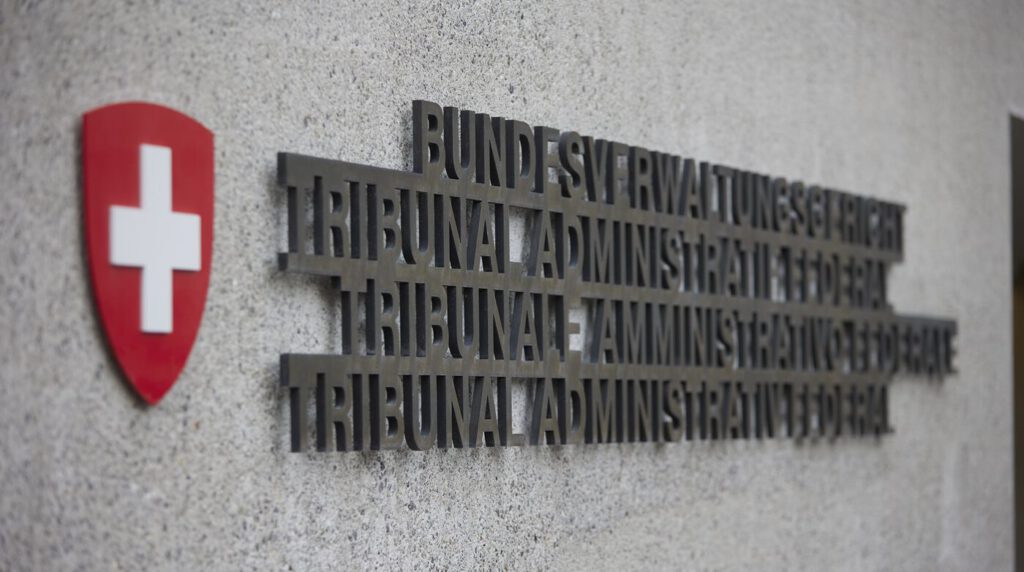
Switzerland forced Credit Suisse into an emergency merger with UBS. But court proceedings are bringing details to light that show how wrong this move was.
The collapse of the crisis-stricken bank Credit Suisse (CS) is one of Switzerland’s biggest embarrassments, alongside the disappearance of Swissair.
Instead of quickly resolving the financial problems, Switzerland created a whole host of new challenges.
Sorting out all the facts
Court proceedings are now revealing more and more details about CS that show how senselessly the Swiss authorities, including the Federal Department of Finance (FDF), the Swiss Financial Market Supervisory Authority (FINMA), and the Swiss National Bank (SNB), acted.
The judges at the Federal Administrative Court (FAC) dissected the demise of CS down to the smallest detail and sorted the facts according to Swiss legal framework.
This shows that not only was there no legal basis for writing off so-called AT1 bonds, as reported by muula.ch.
But also that he federal judges overturned the emergency law that then-Federal President Alain Berset, Finance Minister Karin Keller-Sutter, and FINMA President Marlene Amstad had justified to the media.
Merger as stated in the law
The court stated in its reasoning that the legislature had created appropriate legal rules for scenarios where there are justified concerns that a bank is over-indebted or has serious liquidity problems.
As a restructuring measure, FINMA could, in particular, require the bank to merge with another company to form a new legal entity or may require another legal entity to take over the bank.
This ultimately corresponds exactly to what happened in the present case through the absorption merger between the big bank and CS, the federal judges explained.
Circumventing the law is not possible
“The constitution does not allow the executive branch to derogate from existing law by means of emergency ordinances,” the Federal Administrative Court clarified on the basis of Federal Supreme Court decisions.
And the Swiss federal government cannot operate under emergency law simply because it does not like the law.
The enactment of an “emergency ordinance” is therefore only permissible if the legal system does not provide for any other measures that are sufficient to deal with any extraordinary situation.
However, this is not the case with CS.
A familiar banking problem
Liquidity problems have always been a familiar issue for banks.
In this respect, the federal authorities were not confronted with any such new problem.
A “bank run,” i.e., a rapid and unpredictable loss of customer confidence, is not a new phenomenon, but rather just an inherent business risk for all banks.
FINMA as the decision-making authority is wrong
In addition, the Federal Council is solely responsible for ordering emergency measures, and delegating this authority to a department, an office, or an independent supervisory authority is not permitted.
With the emergency ordinance, the Federal Council left the fundamental question of whether the AT1 bonds should be written off entirely – at the discretion of FINMA – without providing any guidance on the substance of the matter.
However, it would have been up to the Federal Council to examine whether the conditions for ordering a write-off of the additional core capital on the basis of emergency law were met or not, the federal judges explained.
Hoping for a miracle
FINMA now intends to appeal the decision to the Federal Supreme Court, as the authority announced on its website today.
However, the judges in Lausanne are also likely to take a critical view of the matter, as the Federal Administrative Court bases many of its decisions on those of the Federal Supreme Court.
But Switzerland has no choice but to hope for a miracle before the Federal Supreme Court.
Further trouble with shareholder lawsuits
Last but not least, CS itself refutes the arguments for writing off the AT1 bonds.
The crisis-stricken bank informed FINMA at the last minute that the event defined in the bond terms and conditions had not actually occurred.
In addition, CS stated that UBS’s purchase price for CS shares of around 3 billion Swiss francs did not include the 16.5 billion Swiss francs bond write-down ordered by FINMA.
This gives new fuel to other plaintiffs against Switzerland, as many shareholders had refused to accept the low purchase price in separate court proceedings.
Billions in write-offs as the trigger
Why did CS ultimately go under?
Well, the trigger was billions in write-offs in the US, which were based on a change in strategy by the last CS management under Chairman Axel Lehmann and CEO Ulrich Körner, as was all reported by muula.ch.
Then the Swiss authorities, together with the Americans, wanted to achieve a merger between UBS and CS.
Selling CS’s troubled US unit was not an option because it would have meant that the parent company’s capital ratios would no longer have been met.
And in retrospect, all this is to be presented as a logical consequence of rescue measures. But honorable federal judges are not playing along.
10/15/2025/kut./ena.




